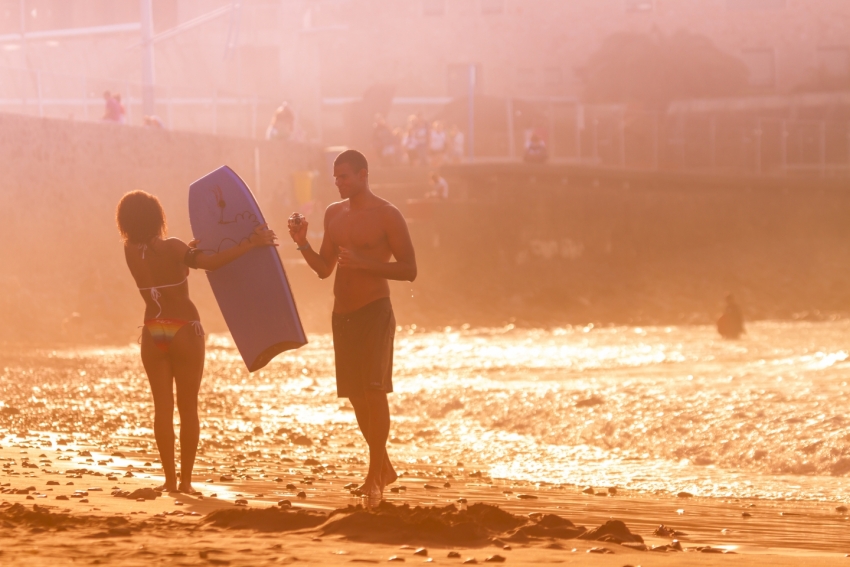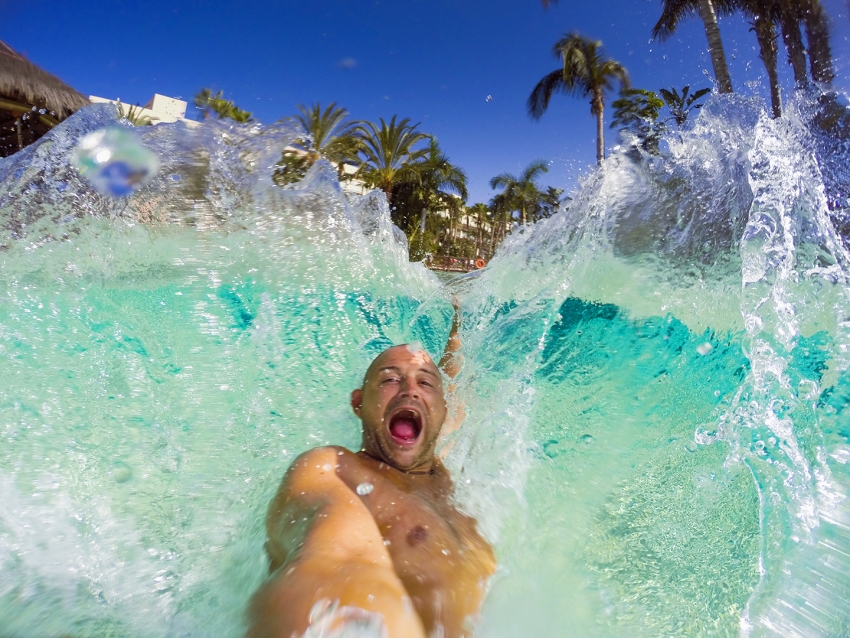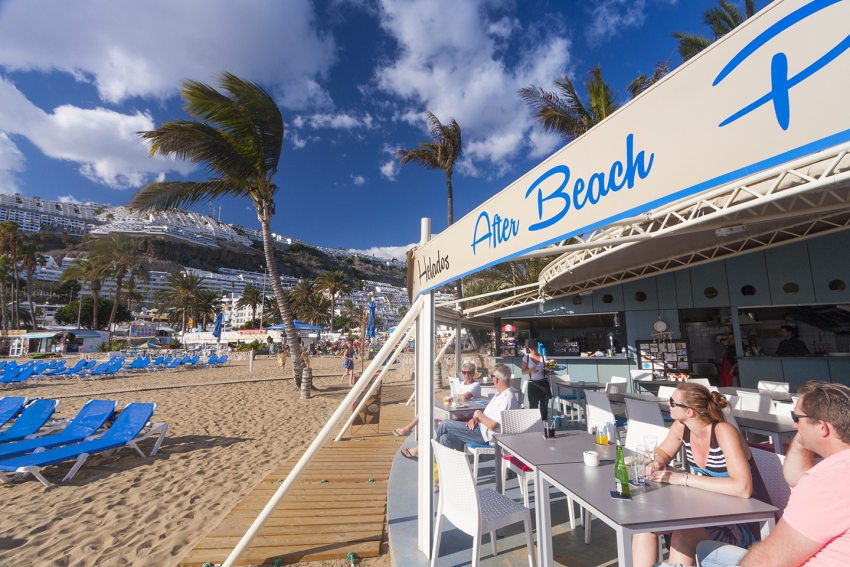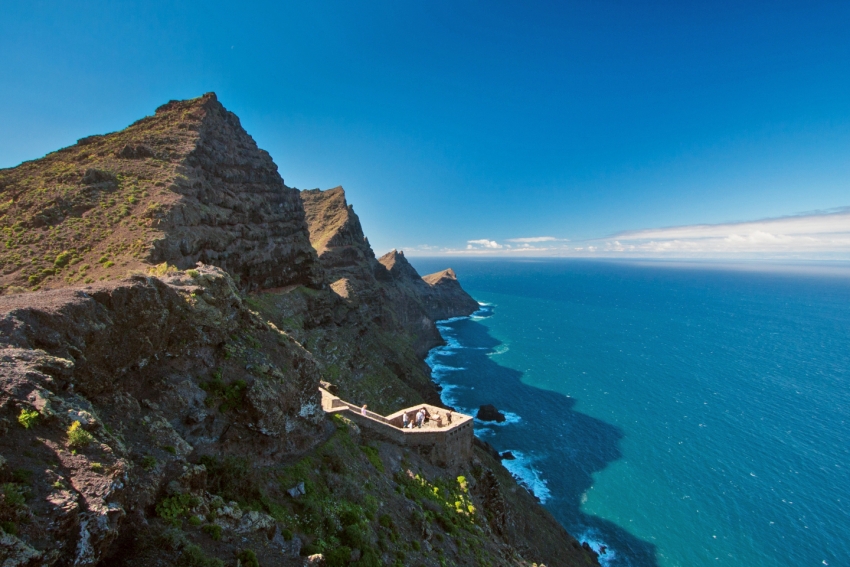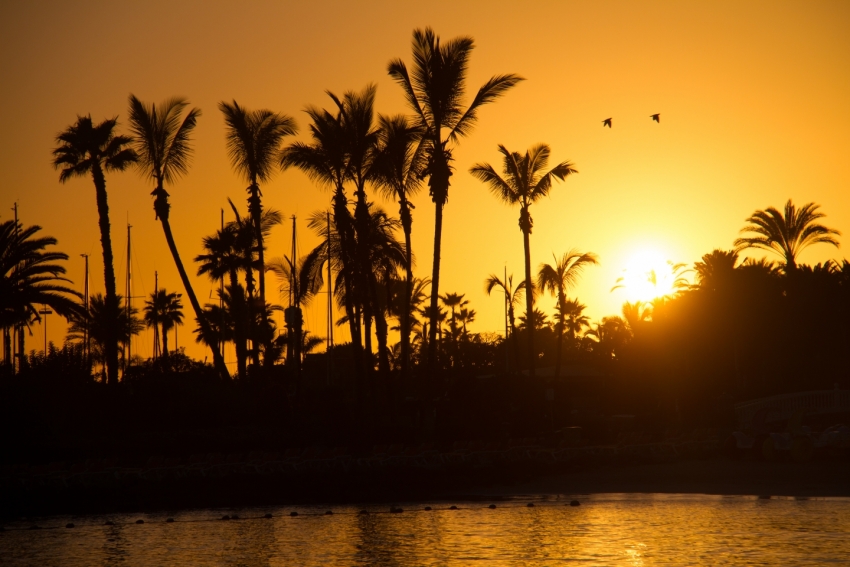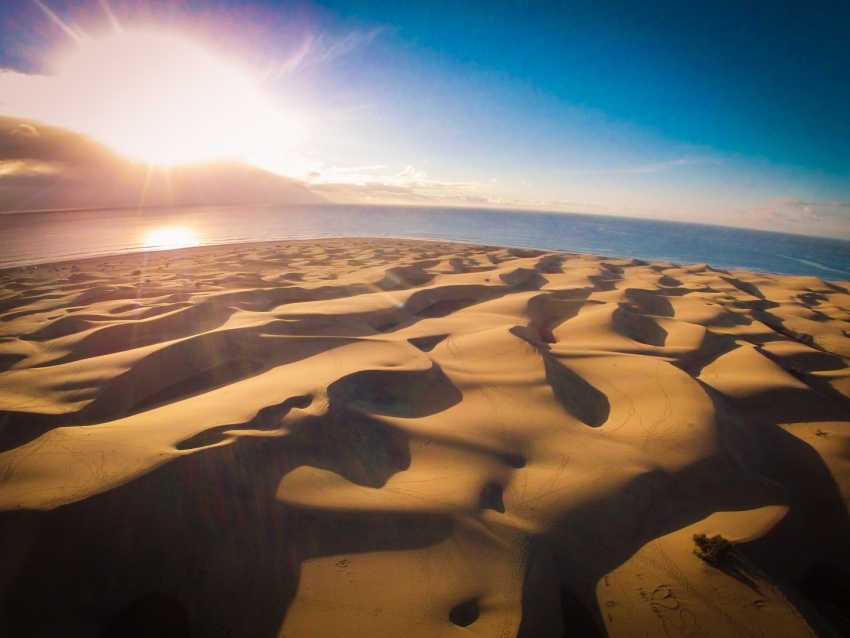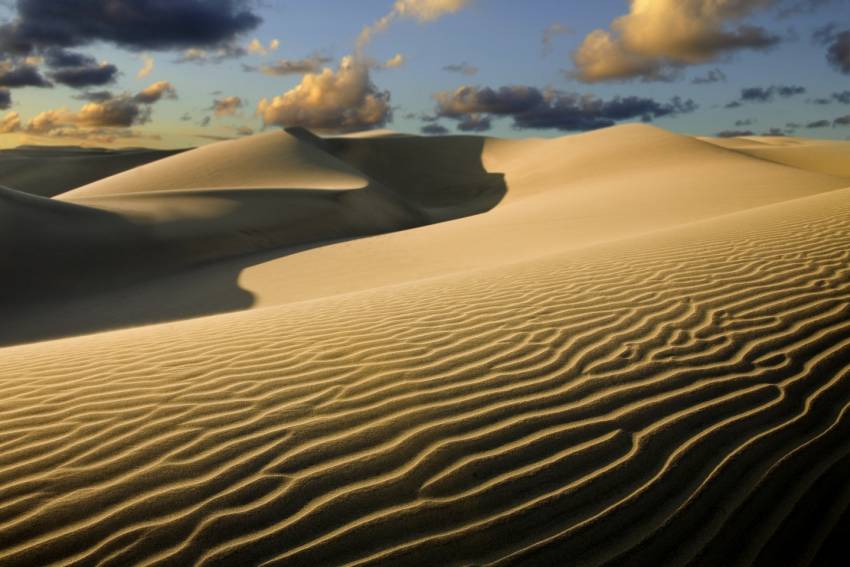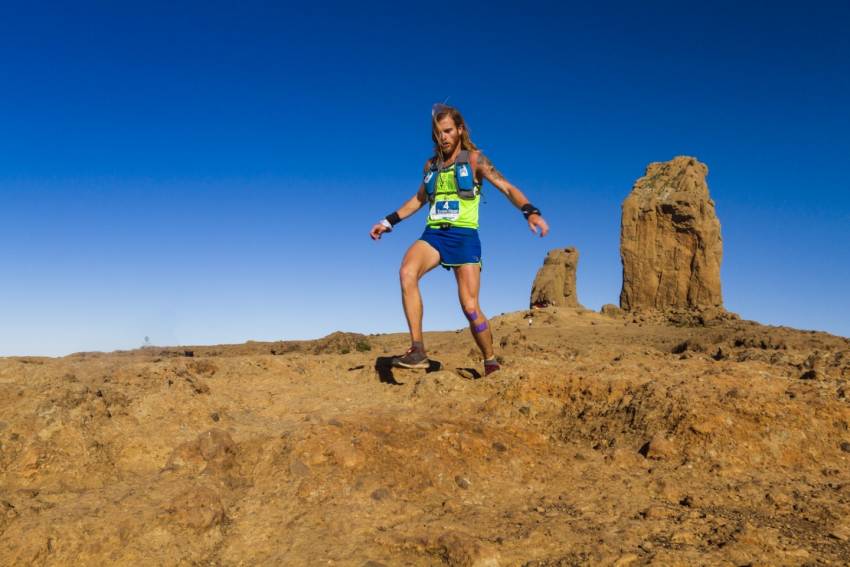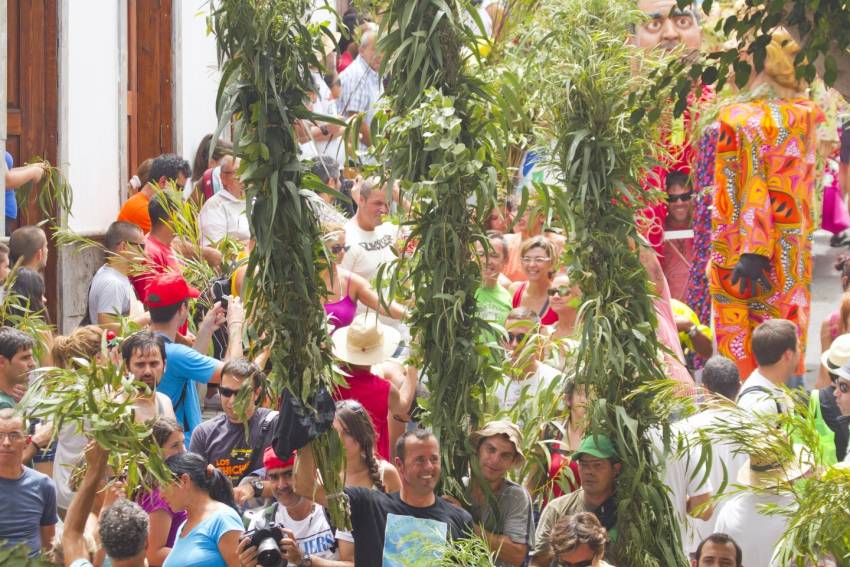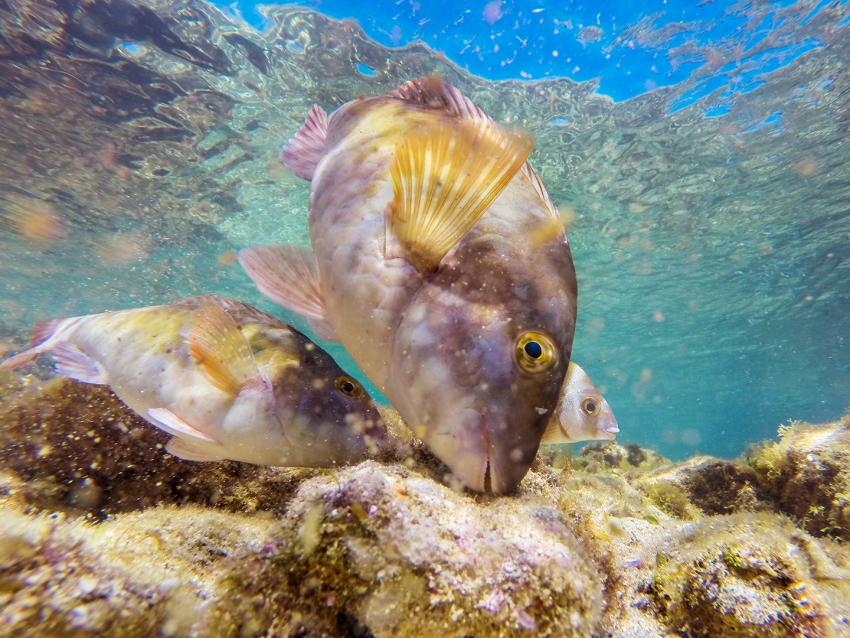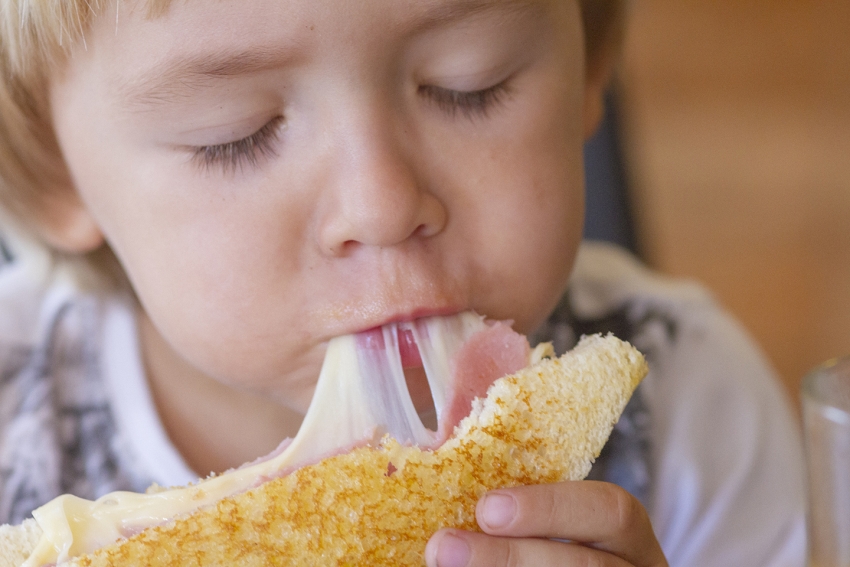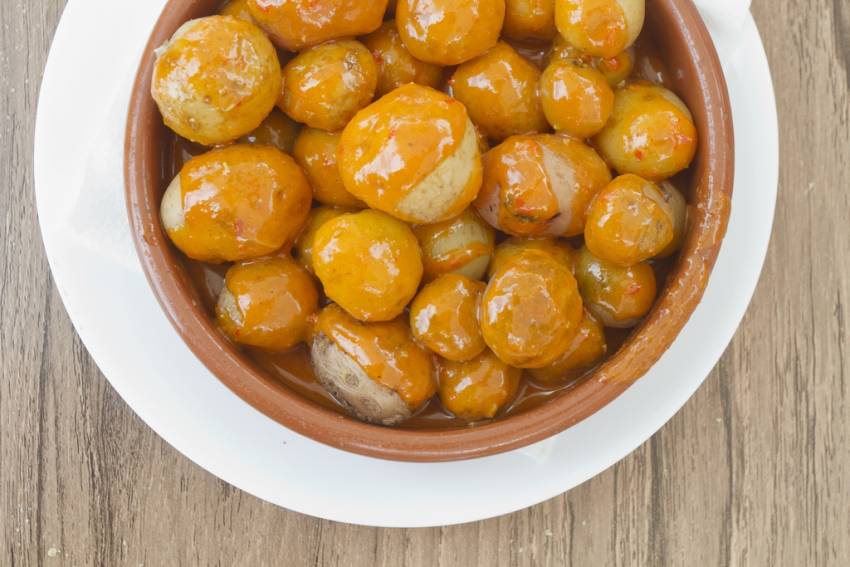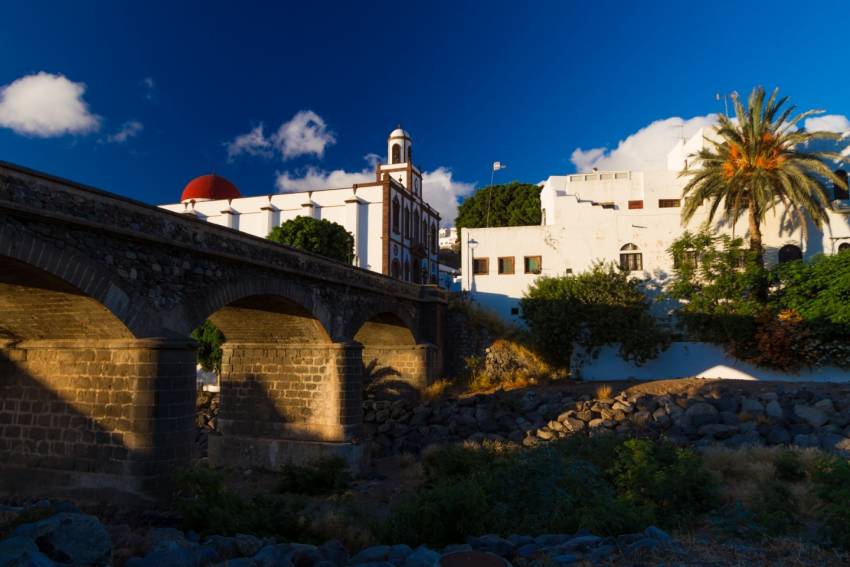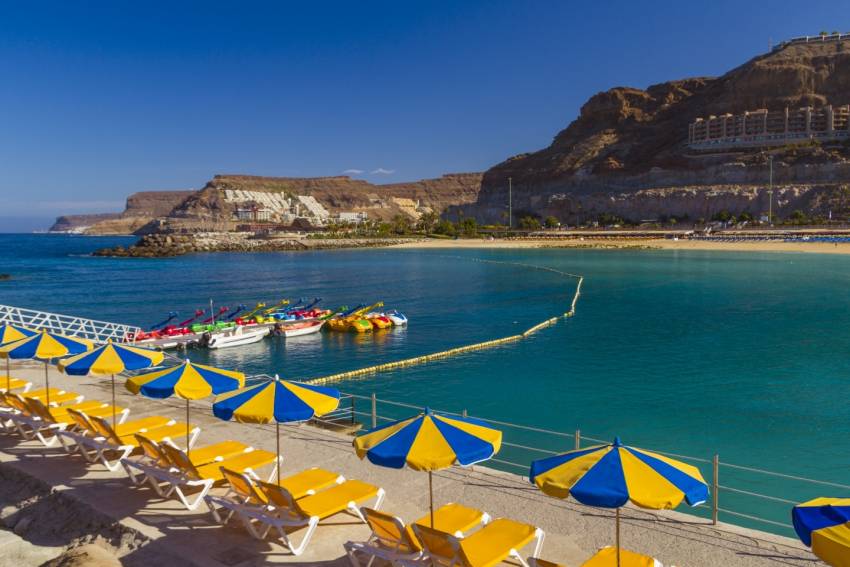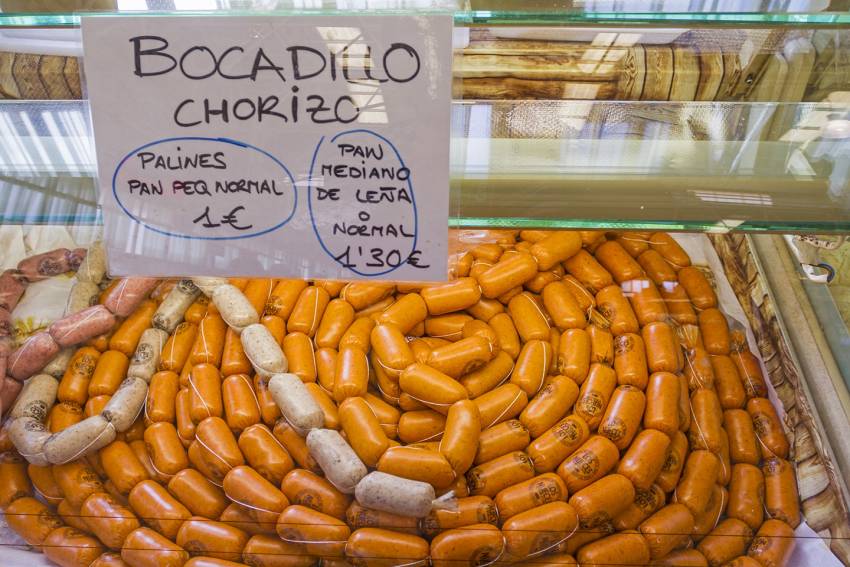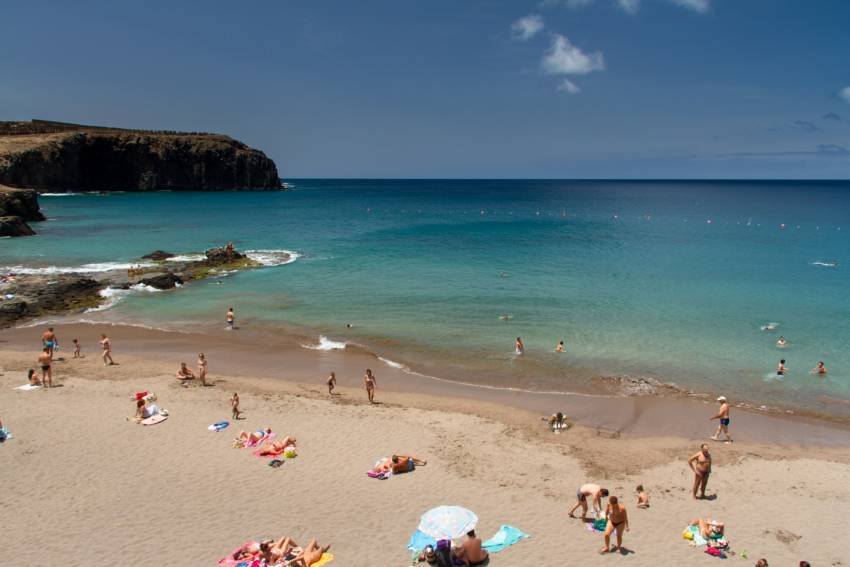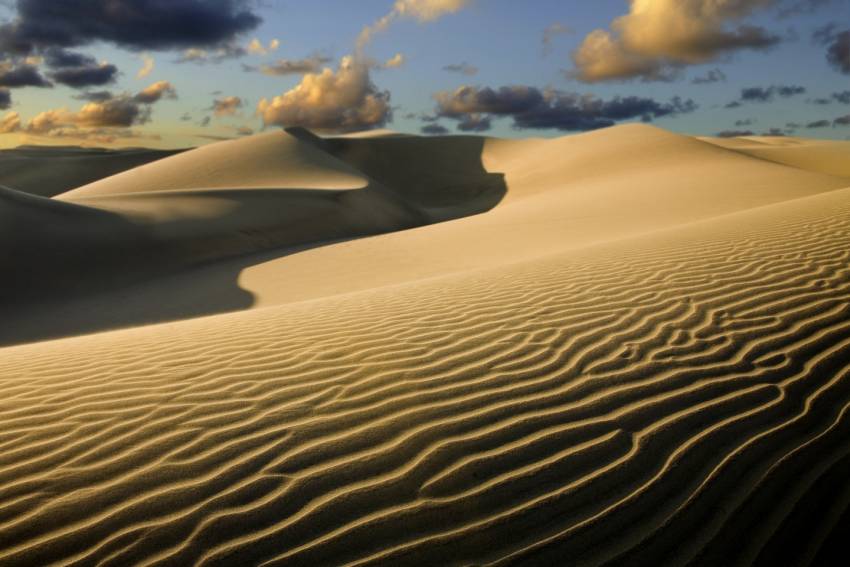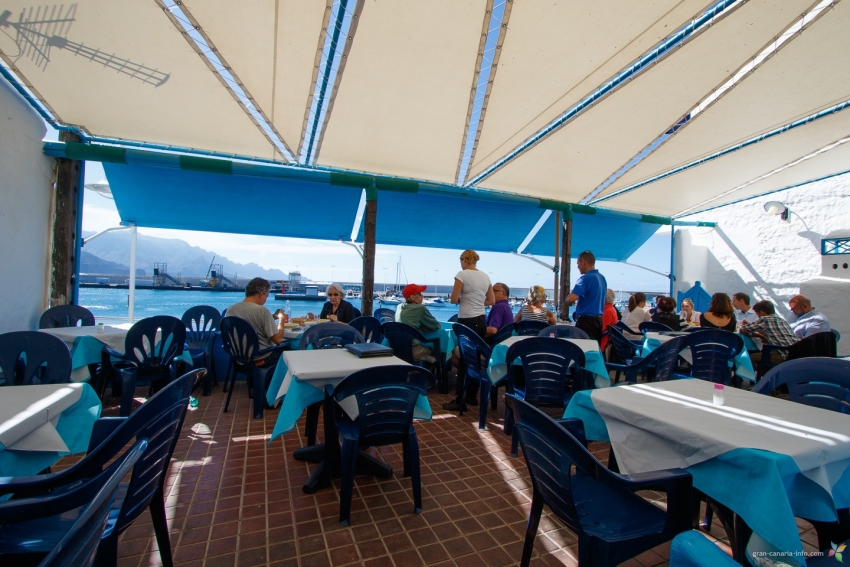The Top 10 Reasons Why Gran Canaria Is A Sexy Island
In the olden days, Gran Canarians used to dance in the moonlight wearing nothing but big leaves. Maybe it's the reason why the island has become such an open, friendly and sexy place to visit.
Gran Canaria's Top 10 Spots To Snap A Jealousy-Inducing Selfie
You come on holiday and the most important thing after having a great time is to make sure everyone at home knows you're having a great time. So get out the selfie stick (or don't; they are rather silly) and snap away at these top jealousy-inducing Gran Canaria spots.
The Take-It-Easy Guide To Gran Canaria Adventure
There are lots of things in Gran Canaria you can do and plenty of things you should do. Here are ten things you have to do. It's an order!
The Top 10 Most Spectacular Viewpoints In Gran Canaria
Two things Gran Canaria isn't short of are spectacular views and people who put viewpoints in front of them. Here's our pick of the best ten places to take in a landscape in Gran Canaria.
Top Ten Gran Canaria Sunset Spots
The Top Ten Tourist Spots In South Gran Canaria
We cover Gran Canaria from nose to tail and while we love the remote bits, lots of people's favourite spots are close to the resorts. Here are the top spots that south Gran Canaria's tourists love the most.
Gran Canaria's Top Ten Unmissable Sights
Gran Canaria sells itself as a Miniature Continent, but this can make the place sound like one of those model villages that nobody visits. Be in no doubt that Gran Canaria's top sights are epic in scale and well worth visiting.
Top Ten Gran Canaria Sporting Events To Watch Or Win
Whether you surf, swim, run or drive, there's a Gran Canaria competition that you have to watch or try to win. Here are the Top Ten annual sporting events in Gran Canaria.
The Top Ten Gran Canaria Fiestas You Have To Experience
Gran Canaria is an island that knows how to party. And it does so in its own way. Rather than the dance music parties of the Balearics or the bull fests of Spain, Gran Canaria goes local with its fiestas.
Top Ten Snorkeling Spots in Gran Canaria
With warm, clear water and a huge range of African, Atlantic and Mediterranean fish Gran Canaria is a top class snorkeling spot. However, you need to know where to go because the sandy beaches, where most people jump in, aren't the best place to meet the marine life. Here's our guide to the best places to snorkel in Gran Canaria.
Gran Canaria Foods That The Locals Love
Canarian restaurants all serve delicious papas con mojo and goat cheese, but there are lots of Canarian foods that don't make it to the menus. Here are the top ten local favourites that you have to track down on your own.
Donuts
Gran Canaria Donuts are light and sweet with a hint of lemon and knock the socks of those stodgy Crispy Crème things. They come as traditional sugar or chocolate doughnuts with a hole, or with a chocolate or custard filling. Donuts are sold in most Gran Canaria newsagents, bars and corner shops. Avoid on Sundays as there are no weekend deliveries and Donuts go stale in hours.
Bocadillo de Calamares
Deep fried squid rings in a bread roll with plenty of lemon juice. The quintessential Canarian beach snack and available at any local bar or café close to the sand. For the best ones pick a bar with a stream of locals walking out carrying plastic bags.
Barquillo
Barquillo is ice cream cone without the cold filling. It comes in sheets or rolls and is a popular Canarian beach snack, especially on Las Canteras Beach in Las Palmas. Watch out for vendors walking along the beach carrying a basket.
Polvitos
A dessert that has taken Gran Canaria by storm that we think was invented in the Novillo Precoz (a fantastic steak restaurant) on Calle Portugal in Las Palmas. Polvitos are basically cheesecake made with whipped cream instead of cheese. They are flavoured with dulce de leche and are sweet and moreish. Some Gran Canaria restaurants have given up serving any other pudding.
Nisperos
Known in English as loquats these little orange fruits are common all over Gran Canaria but rarely make it into the shops as they rot quickly. To eat a nispero bite off the stalk and squeeze out the juicy flesh in one go. Don’t forget to spit out the big, brown seeds. Their flavour is delicate and a bit like tangerine.
Pollo en Adobo
This never makes the list of traditional Canarian foods, but it's on most dinner tables at least once a week. Pollo en adobo is chicken marinated in lots (and lots) of garlic and fresh coriander and then fried. Pungent and delicious!
Sandwich Mixto
It’s hard to believe that two bits of white bread and a slice of ham and cheese can be so delicious. The sandwich mixto is the Canarian version of the ham and cheese toastie and is served for breakfast and as a snack at any time. The secret is in grilling the bread with plenty of butter.
Leche y Leche
An espresso shot with a dash of milk and a tablespoon of condensed milk to sweeten it. The condensed milk sits at the bottom of the cup and you have to stir it well before drinking. In Tenerife order a baraquillo and in Lanzarote a café bonbon.
Clipper
Clipper is Gran Canaria’s answer to Fanta and Coca Cola. It’s a virulent red colour and tastes of strawberry air freshener. Canarians are proud of their local soft drink and guzzle it by the gallon. Try it if you have a sweet tooth but don’t ask too many questions about the colour and watch out for stains! For the cautious there are clipper flavoured ice lollies that taste pretty good.
Pepe Chiringo
Don Pepe started with a hot dog cart and now owns a chain of fast food restaurants in Gran Canaria. The food is cheap and cheerful and goes down well after a few beers. There is one on Avenida Tirajana in Playa del Inglés and another by the big park in Maspalomas. Gran Canaria’s answer to the Golden Arches and without the creepy clown!
Do you have a favourite Gran Canaria food that never makes the Top Ten lists? Let us know and we'll add it to the list
The Top Ten Canarian Foods That Everybody Should Try
Canarian food is one of the highlights of a holiday in Gran Canaria. Try it in local restaurants in the capital Las Palmas or in the hill towns. The Canary Islands dishes served in the resorts are rarely any good.
Papas Arrugadas
The Canarian dish that everybody tries and most people love. Papas arrugadas or wrinkly potatoes are small potatoes boiled their skin in sea water until the wrinkle up and develop a thin crust of salt. They are served covered with Mojo Picon, a spicy sauce made of olive oil, cumin,chili peppers, raw garlic and vinegar. The Canarian word of potato is papa, which also means pope. Some mistranslated English menus describe papas arrugadas as “wrinkly popes”!
Gofio
The staple diet of the pre-Hispanic indigenous Canarians, who did not survive the Spanish colonisation of the island, gofio is a nutritious flour made from pre-roasted barley or maize. Add it to coffee for a stomach-lining breakfast or try gofio escaldado, a sort of thick porridge flavoured with mint and eaten with raw red onions. Gofio is an acquired taste!
Sancocho Canario
A festival dish that is served on Sundays and at local Romerias (Canarian fiestas), Sancocho is a stew made from salted cod fish and sweet potato. Sancocho is traditionally served with pella de gofio, a soft paste made out of roasted maize flower and water. Sancocho is various forms can be found all over South America but the Canarian version is the original.
To be perfectly honest sancocho is incredibly fishy and salty and hardly anyone who isn't Canarian likes it.
Tropical Fruit
The subtropical climate of Gran Canaria means that it is one of the only places in Europe that can grow tropical fruit. Mangos, papayas, cactus fruit (tunos), pineapples, guavas, water melons and of course bananas are all grown locally and can be found in the main shops and markets. Canarian bananas are smaller than Caribbean ones and much tastier!
Ropa Vieja
Literally translated as “old clothes”, ropa vieja is a tasty stew made from chickpeas and chicken or beef, flavoured with bay leaves. Traditionally it was made from the meat leftover after making soups. There is a local myth that ropa vieja was invented by a man so poor that he made soup out of his clothes, which turned into this delicious dish.
Potaje
A thick and tasty vegetable soup made from potatoes, corn cobs and mixed vegetables, often with lots of watercress in it. Potaje is a good option for vegetarians. Most local restaurants make a different potaje every day.
Carne de Cabra
There is nothing better than slow-cooked, fatty goat meat served in huge portions. While lots of people think goat meat has a very strong taste, the Canarian way of stewing it on the bone makes it juicy and delicious.
Pata Asada
A staple snack, pata asada is roast pork, served cold sprinkled with sea salt. Done well it is moist and addictive! Done badly, it is shoe leather!
Squid and Octopus
There aren't many crabs and lobsters around Gran Canaria but there is plenty of squid, octopus and cuttlefish and Canarian cooks do them all justice. Squid is fried in rings (calamares fritos) and soaked in lemon juice and octopus is sliced thinly and served covered in sea salt and paprika (pulpo a la Gallega). Tiny squids are deep fried and served whole (puntitas de calamar) while cuttlefish are stewed with potatoes (choco en salsa)
Deserts
Truchas de batata are similar to turnovers and are filled with sweet potato while huevos mole is thick custard flavoured with lemon peel and cinnamon. With any desert, ask if it is home made (casero) to avoid disappointment. Mazapan is dense shortcake made from almond flour that is sold in the mountain villages.Also don't miss Guarapo, a sweet, almost black syrup made only on La Gomera from palm tree sap.
Ten Top Gran Canaria Towns
There are still towns in Gran Canaria where the children stare at tourists, the menus are only in Spanish and life revolves around family, work, farming and fun rather than keeping tourists happy.
The Top 10 Resort Beaches In Gran Canaria
Gran Canaria has over 80 beaches but lots are small and hard to get to unless you have a four-wheel-drive vehicle or love walking. For those who prefer their beaches convenient, here are the Top Ten Tourist Beaches in Gran Canaria.
The Top Ten Scary Canarian Foods
There's nothing scary about a plate of papas con mojo, except perhaps the next day's garlic breath. However, there are plenty of Canarian dishes that make visitors squeamish. Here's the top ten for you to try.
The Top Ten Local Beaches In Gran Canaria
Tourists love big, sandy beaches with plenty of amenities and umbrellas for rent. Canarians, on the other hand, prefer their beaches to come with fish restaurants, or to be completely natural. We covered the Top Ten Tourist Beaches in Gran Canaria here, but this post is about the beaches that the locals keep to themselves.
Top Ten Reasons To Choose Gran Canaria
While almost four million people visit Gran Canaria every year, most come for the sunshine without realising that the whole island is a great destination.
Gran Canaria Info recommends:
- Default
- Title
- Date
- Random

